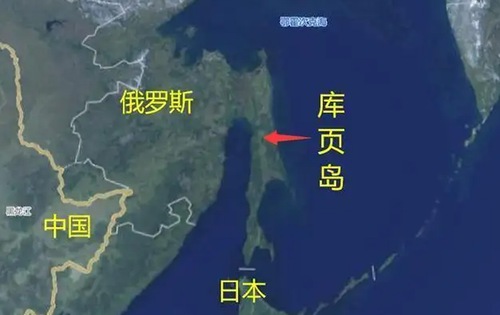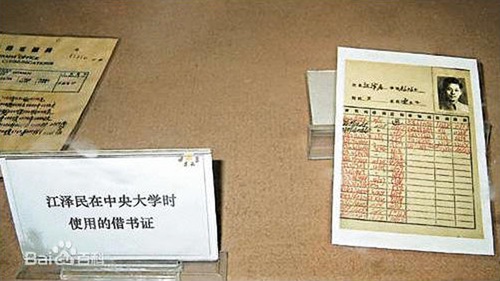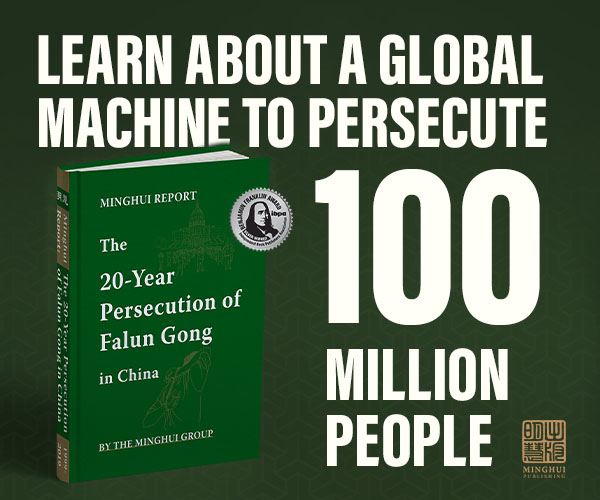(Minghui.org) Jiang Zemin has died, but people are still talking about his three monikers.
First Moniker: Jiang the Traitor
What is the largest island in China? The answer changed over time. Right now, the answer is Taiwan. Before Jiang Zemin took power in 1989, however, the answer was Sakhalin, which is twice as big as Taiwan. So, what happened during that time?
Between 1999 and 2001, Jiang signed several treaties with Russia, officially ceding the eastern section of the Sino-Soviet Border, including Sakhalin, to Russia. In Jiang’s obituary, the CCP highlighted his “accomplishments,” without mentioning the cession of land. That’s why most people were unaware of the biggest treason in China’s history until Russia publicized such information
China has 9.6 million square kilometers of land in total. But 33% of it is desert and desertified areas, and 38% is seriously-eroded. That means only less than one-third of all the land is habitable. Jiang gave Russia not only a large chunk of land but also land that is fertile. It also has the 9 deepest oil wells in the world due to its large amount of untapped oil reserves.
 Jiang Zemin gave Sakhalin (marked with a red arrow), once the largest island in China, to Russia. Russia lies to the west, China to the southwest, and Japan to the south of Sakhalin.
Jiang Zemin gave Sakhalin (marked with a red arrow), once the largest island in China, to Russia. Russia lies to the west, China to the southwest, and Japan to the south of Sakhalin.
To make things worse, Sakhalin (72,000 square kilometers) account for less than 10% of the total land ceded by Jiang. Chinese citizens were unaware of this until Russia publicized the information. So why would Jiang do that?
Jiang’s traitorous nature started in his youth. According to the Real Story of Jiang Zemin, his father was Jiang Shijun, a traitor during the Japanese invasion (1937 – 1945). After a traitorous puppet regime of the Japanese was established in Nanjing, Jiang Shijun sent Jiang Zemin to study in Nanjing Central University. As a training of the “Nanjing University Young Leaders Training Session,” Jiang Zemin and others were trained as special agents for the puppet regime.
This was confirmed by Nanjing University’s archive department after Jiang became the top leader in 1989. Although the university contacted Jiang at the time to resume the connection, they never heard back – Jiang always avoided that part of history involving his traitorous record.
 Library card of Jiang Zemin at Nanjing Central University
Library card of Jiang Zemin at Nanjing Central University
Because the special agent training program operated under the instruction of Japanese general Kenji Doihara, however, the record was recovered when the Soviet Union defeated the Japanese in northeast China in 1945. When Jiang visited the Soviet Union for technical training in 1955, the Soviet intelligence agency uncovered the connection. An undercover mistress named Klava was then assigned to seduce Jiang. After Jiang fell into the trap, the KGB promised to hide the Japanese traitorous history and the affairs, as long as Jiang agreed to act as a KGB. Jiang agreed.
This led to a series of treaties Jiang signed with Russia to “give away” the land. Because of exposing this history, Hong Kong journalist Cheng Xiang was arrested in 2005 when he visited mainland China.
Second Moniker: Head Coach of Corruption
Many high-ranking officials in China were arrested in recent years for corruption. But according to an article from Global News Times in Hong Kong in September 2015, a large number of these corruption cases were linked to Jiang Zemin. For example, Zhou Yongkang, Xu Caihou, Gu Boxiong, and others were all promoted by Jiang.
Jiang rose to the top position by suppressing the student democratic movement in 1989. To win the loyalty of high-ranking officials, including those in the military, Jiang encouraged them to take bribes and line their own pockets. When addressing Hong Kong journalists in October 2000, he further clarified it, “Keep silent and make a fortune – That’s the best way.”
It was said that Jiang’s family had amassed a fortune of at least US $1 trillion and half of that had been whitewashed. Because of that, Jiang was often dubbed the “Head Coach of Corruption.”
As a result, corruption ran rampant during Jiang’s tenure. Lai Xiaomin, Party secretary and chairman of the board for Huarong Asset Management, was found to be keeping 270 million yuan (or $42 million) in cash gained from bribery at home. Ren Shifeng, a village official in Beijing owned 31 kilos of gold bars. Xu Changyuan, a district Party secretary from Dalian City, Liaoning Province, had 2,714 apartments in his name.
Third Moniker: Jiang the Devil
Throughout history, there had been numerous notorious heads of state. The Roman Emperor, Nero, was often referred to as a demon for his persecution of Christians. Hitler was considered the epitome of evil for his genocide of the Jewish people. Jiang outdid both Nero and Hitler in his persecution of Falun Gong.
As a peaceful meditation system, Falun Gong embodies the principles of Truthfulness-Compassion-Forbearance and teaches its practitioners to become better citizens. Jiang deemed Falun Gong’s popularity a threat to his control of people and launched a massive suppression of the practice in July 1999.
A large number of practitioners have since been detained, imprisoned, and subjected to various forms of torture (such as corporal punishment, forced labor, mental abuse, involuntary drug administration, and sex abuse). Jiang and the CCP also issued orders to forcibly extract organs from living Falun Gong practitioners, a crime referred to as a new form of evil on this planet by human rights lawyers.
After extensive investigations and hearings, the China Tribunal concluded in 2020 that, “Forced organ harvesting has been committed for years throughout China on a significant scale and that Falun Gong practitioners have been one - and probably the main - source of organ supply.”
American Journal of Transplantation published a paper titled “Execution by organ procurement: Breaching the dead donor rule in China” in April 2022. The paper concluded, “We find evidence in 71 of these reports, spread nationwide, that brain death could not have properly been declared. In these cases, the removal of the heart during organ procurement must have been the proximate cause of the donor’s death,” wrote the authors, “Because these organ donors could only have been prisoners, our findings strongly suggest that physicians in the People's Republic of China have participated in executions by organ removal.”
Forced organ harvesting is not an isolated crime. To fully implement the persecution policy, Jiang established the extrajudicial agency of 610 Office in June 1999. In the past 23 years, this agency worked with government officials at all levels, especially the police, courts, and procuratorates to arrest, indict, and sentence practitioners.
Over time, Jiang also issued numerous orders against Falun Gong such as “beating [practitioners] to death is counted as suicide. Send the body for cremation directly without verifying identity” and “killing with no mercy.” He also gave orders to “defame their [practitioners’] reputation, bankrupt them financially, and destroy them physically.”
The victims were not only limited to innocent practitioners and their families. By targeting the principles of Truthfulness-Compassion-Forbearance through news media, government agencies, the education system, the entertainment industry, and other professions throughout society, Jiang has also brought unprecedented corruption, moral decay, and damage to the environment. When we worry about counterfeit goods, poisonous food, and social problems in China, we need to be clear they are part of the horrific legacy of Jiang.
Views expressed in this article represent the author's own opinions or understandings. All content published on this website are copyrighted by Minghui.org. Minghui will produce compilations of its online content regularly and on special occasions.
Category: Perspective










